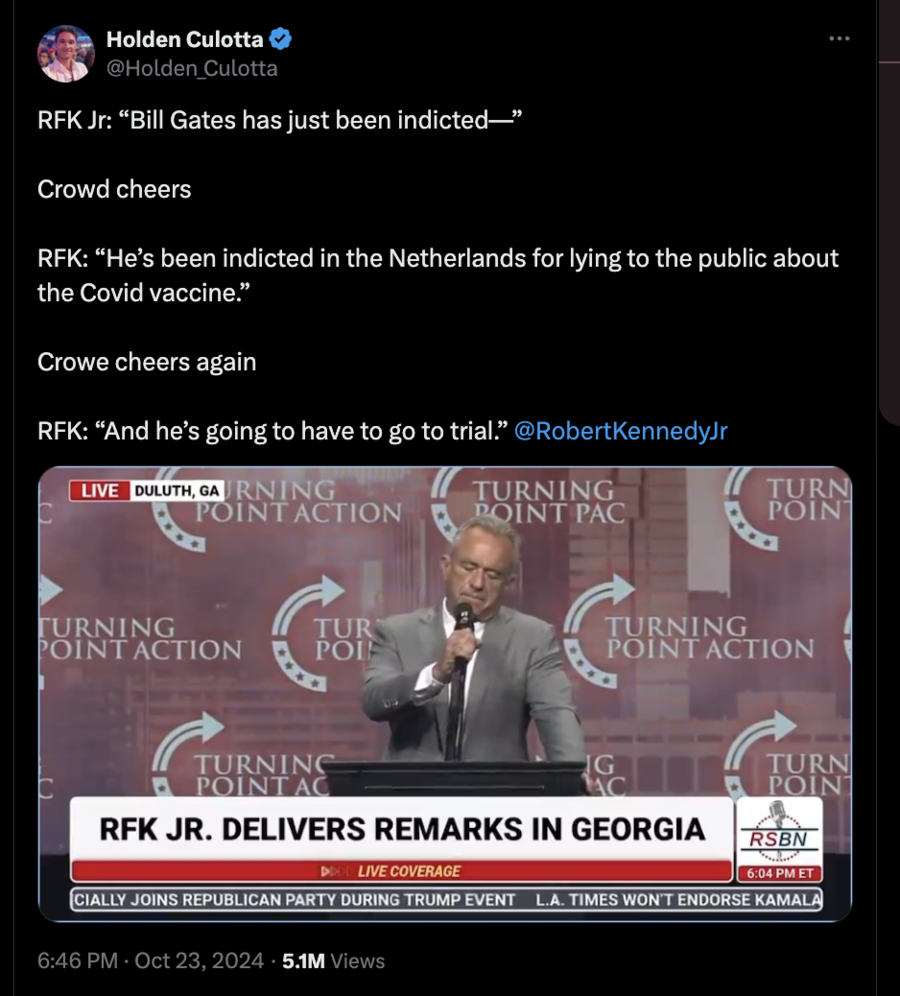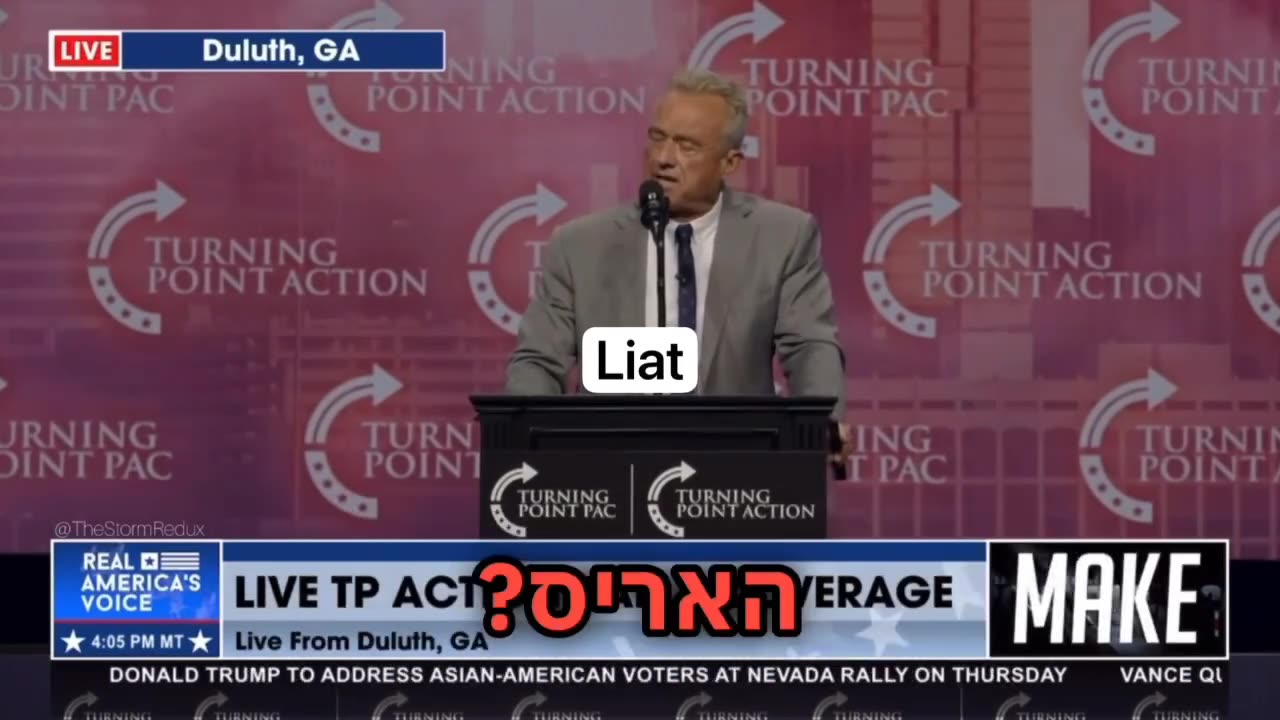Has Bill Gates been indicted by a Dutch court, as some social media posts aggressively claim? The answer, confirmed by legal experts and major news outlets, is a resounding no. The misrepresentation of a civil case as a criminal indictment highlights the dangers of misinformation and the spread of unverified claims online.
The narrative, fueled by a complex mix of vaccine skepticism and distrust of prominent figures, paints a picture far removed from reality. A recent ruling by a Dutch court, concerning a civil lawsuit against Bill Gates related to COVID-19 vaccines, has been twisted and amplified, resulting in the false assertion that Gates faces criminal charges. This distortion serves as a stark reminder of how easily information can be manipulated and disseminated, often with significant consequences for public perception and trust in established institutions.
The genesis of this confusion lies in a civil case brought before the Leeuwarden District Court in Friesland, Netherlands. Seven plaintiffs, described in reports as corona skeptics, are suing Bill Gates, along with other defendants, alleging injuries they attribute to COVID-19 vaccines. The Stichting Recht Oprecht foundation is facilitating this legal action. The core of the case is not a criminal investigation but a civil claim, which means the plaintiffs are seeking compensation for damages, not criminal prosecution. The plaintiffs are accusing Gates and other defendants of misleading the public about the alleged dangers of COVID-19 vaccines. The lawsuit also includes several government officials and the CEO of Pfizer, Albert Bourla, among the defendants.
| Bill Gates: Key Information | |
|---|---|
| Full Name: | William Henry Gates III |
| Born: | October 28, 1955 (age 68) |
| Birthplace: | Seattle, Washington, U.S. |
| Education: | Harvard University (attended, but did not graduate) |
| Spouse(s): | Melinda French Gates (m. 19942021) |
| Children: | 3 |
| Known For: | Co-founder of Microsoft, Philanthropist |
| Current Affiliations: | Bill & Melinda Gates Foundation (Co-chair) |
| Career Highlights: |
|
| Net Worth (approx.): | Over $100 billion (as of late 2023) |
| Website for Reference: | Bill & Melinda Gates Foundation |
The core of the legal dispute revolves around whether the defendants are liable for the injuries the plaintiffs claim to have sustained due to the vaccines. The plaintiffs are primarily challenging the messaging and promotion of the vaccines, alleging that the public was misled regarding their purported risks and benefits. This is not a criminal investigation but a civil claim. The claims are not being made through criminal proceedings, and no criminal charges have been filed. Gates initially argued that the Dutch courts lacked jurisdiction over him, but the court dismissed this argument, allowing the civil case to proceed.
The misrepresentation of these events, as an indictment, is a stark example of the power of misleading narratives. These claims spread rapidly across social media platforms, amplified by accounts and individuals who are often critical of vaccines and public health measures. The claims are frequently packaged with emotive language and visual cues, designed to capture attention and bypass critical thinking. The propagation of such narratives often relies on the selective presentation of information, the absence of credible sources, and a general lack of verification.
The initial reports, picked up by some of the outlets, clearly stated the nature of the legal challenge and that it was a civil case. However, through the echoes of the internet and amplification by certain accounts, the narrative shifted to an indictment. This resulted in a wave of posts using the term indicted to suggest that Gates faced criminal charges and was about to stand trial in the Netherlands. This fabricated reality, quickly picked up by many, highlights how easily complex legal matters can be distilled and misrepresented within the context of social media.
The case itself is noteworthy, but not for the reasons that are being frequently shared online. The Leeuwarden District Court's decision to assert jurisdiction is a significant development in the Netherlands. It sets the stage for a civil trial where the claims of the plaintiffs will be examined. The outcome of this case may have implications for the broader conversation around vaccine safety and the responsibilities of those involved in promoting and distributing vaccines. The case is taking place in the Dutch province of Friesland, where the court will hear evidence, and legal arguments, and ultimately decide whether the defendants are liable for the injuries that are claimed.
The "Great Reset" accusation is also connected to the case. The plaintiffs have claimed Gates and the other defendants are involved in an effort to reshape the global order, and have mentioned the project in their lawsuit. Such unsubstantiated claims often form the core of conspiracy theories, and can create distrust.
The reality of the situation, however, is drastically different. The Dutch courts decision on jurisdiction does not equate to a criminal indictment. A criminal indictment would initiate criminal proceedings, which in turn would result in a trial where the defendants guilt would be determined. In this case, the proceedings revolve around a civil lawsuit seeking damages. The plaintiffs are requesting the court to find the defendants liable for damages they claim to have experienced. There is no criminal investigation. The suggestion that Gates has been indicted is factually incorrect, and unsupported by any credible evidence. In fact, a quick search of news reports from reputable sources will show that no indictments have been issued.
The origins of the misinformation can be traced to a few sources, but the underlying elements remain similar. The central theme is that Gates has been accused of misleading the public about the safety of COVID-19 vaccines and that this has prompted criminal action. The facts, however, show that this is inaccurate. While it is true that a civil lawsuit has been filed, it is not the same as a criminal indictment. If such an indictment had been filed, it would have been reported widely by the reputable media outlets across the world, which would have sparked outrage on social media and would have dominated global news. The absence of such reporting is a significant clue that something is incorrect.
Posts on social media frequently mention a court document hosted on a blog site, but a close examination of the actual document reveals that it contains no criminal charges. These facts, however, often go overlooked, as the narrative gains momentum and takes hold. The original court decision, and the related reports, have been twisted and manipulated, creating a false picture. This also highlights the importance of critically evaluating information. The claim that Gates has been indicted is patently false.
The individuals and groups spreading this misinformation also are responsible for amplifying the false narrative. Often, these groups seek to create a sense of urgency by implying that the truth is being suppressed. This can be seen in the wording used in the social media posts, which often highlight the alleged dangers of vaccines and the untrustworthiness of global health leaders. These messages are designed to resonate with individuals who are skeptical of vaccines and who may feel that their concerns are not being taken seriously by mainstream media or government officials. Some of the posts show Robert F. Kennedy Jr., a vocal critic of vaccines, adding fuel to the fire. Such posts, especially when coming from figures with significant followings, can amplify the spread of misinformation.
The case in the Netherlands is part of a larger trend. It's part of a wider phenomenon where vaccine skepticism and anti-establishment sentiments have found fertile ground on social media platforms. These platforms often struggle to effectively moderate the spread of misinformation. This has led to the rapid dissemination of inaccurate information. The combination of these factors - pre-existing skepticism, emotionally charged narratives, and the rapid dissemination of unverified information - has created a perfect storm.
Ultimately, this incident serves as a cautionary tale. The false assertion that Gates has been indicted is a clear illustration of how quickly and easily misinformation can spread, and how it can be used to manipulate public perception. The case underscores the need for critical evaluation of information, verification from reliable sources, and a healthy skepticism toward claims that seem too good, or too shocking, to be true.
The implications extend beyond the specific case. Misinformation about vaccines can have serious consequences for public health. When people are misled about the safety and effectiveness of vaccines, they may choose not to be vaccinated, which can put themselves and others at risk of infection. The ability of people to make informed decisions about their health is critically important, and the spread of misinformation presents a significant threat to this.
The spread of this false information has implications for global health leaders. The integrity of these leaders, and the organizations they represent, is essential to public trust. Undermining this trust, through misinformation, can make it difficult to implement public health initiatives. A crucial element in effective public health is the support and trust of the communities being served. Disinformation can weaken the trust and damage these relationships. This further complicates public health efforts and makes it harder to respond to future challenges.
As the civil case in the Netherlands proceeds, it's essential to rely on credible news sources and to be skeptical of sensational claims that are shared on social media. The truth about the case is that it is not a criminal matter, but a civil lawsuit. The outcome of that lawsuit will determine the rights of the plaintiffs, and possibly affect the broader public conversation about vaccine safety. The core of the matter comes down to questions of fact and law, not conspiracy theories or misrepresentations.
In conclusion, the claims that Bill Gates has been indicted in the Netherlands are not true. While there is a civil lawsuit against him, it is not a criminal proceeding. It is vital to distinguish between the facts of the case, and the misinformation that is spreading online.


